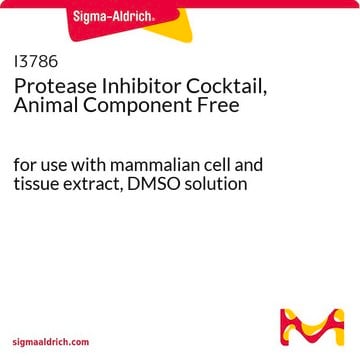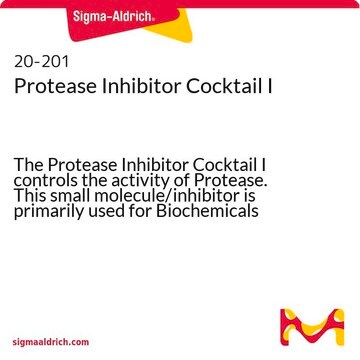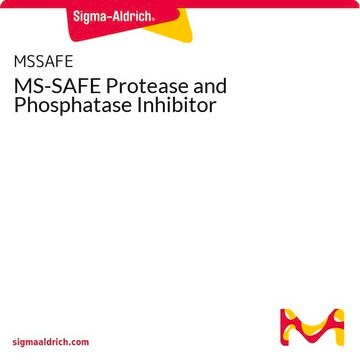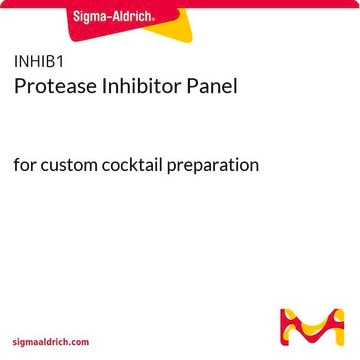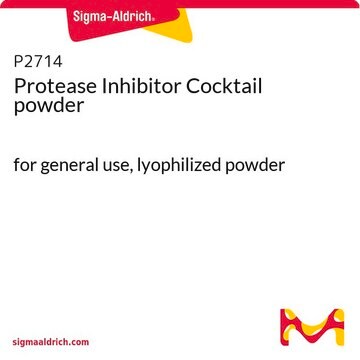539137
Protease Inhibitor Cocktail V
EDTA-Free, lyophilized, A cocktail of four protease inhibitors for the inhibition of serine, cysteine, but not metalloproteases.
Synonym(s):
EDTA free Protease inhibitor
About This Item
Recommended Products
product name
Protease Inhibitor Cocktail Set V, EDTA-Free, A cocktail of four protease inhibitors for the inhibition of serine, cysteine, but not metalloproteases.
Quality Level
form
lyophilized
manufacturer/tradename
Calbiochem®
storage condition
OK to freeze
desiccated (hygroscopic)
shipped in
wet ice
storage temp.
−20°C
General description
Specificity
Biochem/physiol Actions
Serine and cysteine proteases, but not metalloproteases
Warning
Reconstitution
Legal Information
Signal Word
Danger
Hazard Statements
Precautionary Statements
Hazard Classifications
Eye Dam. 1 - Skin Corr. 1A
Storage Class Code
8A - Combustible corrosive hazardous materials
WGK
WGK 3
Certificates of Analysis (COA)
Search for Certificates of Analysis (COA) by entering the products Lot/Batch Number. Lot and Batch Numbers can be found on a product’s label following the words ‘Lot’ or ‘Batch’.
Already Own This Product?
Find documentation for the products that you have recently purchased in the Document Library.
Customers Also Viewed
Our team of scientists has experience in all areas of research including Life Science, Material Science, Chemical Synthesis, Chromatography, Analytical and many others.
Contact Technical Service










